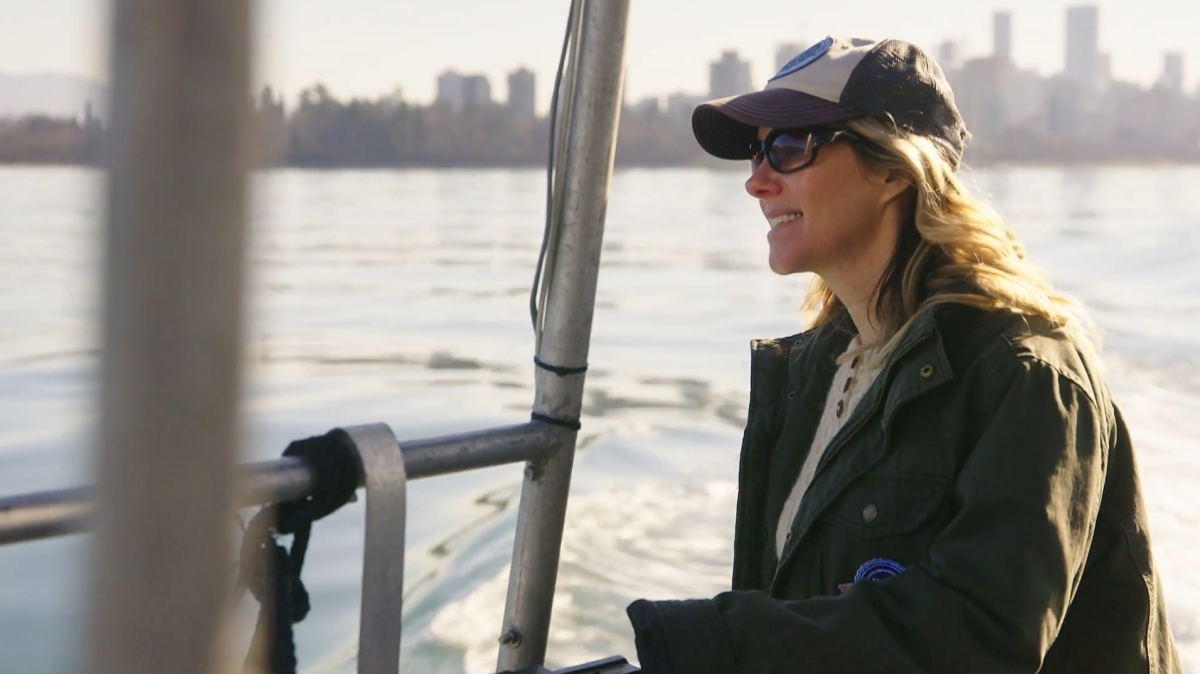Support strong Canadian climate journalism for 2025
Fishing communities, harvesters and advocates are welcoming British Columbia’s intention to work with the federal government to reform the purchase system for fish licences and quotas for B.C.'s commercial fishing industry.
As part of the Coastal Marine Strategy unveiled last week, the province says it’s moving toward an owner-operator system for quota and licences. Under the new system, licence and quota holders would also need to be active fish harvesters — something advocacy groups and First Nations have been requesting for years.
The current individual transferable quotas (ITQ) system allows corporations and foreign investors with deep pockets to buy the right to catch fish for the highest price, making it increasingly difficult for individual harvesters, First Nations and generational fishing families to stay in the industry.
A transition to an owner-operator system would aim to eliminate the ability of a few giants to stake a majority claim on B.C.'s fishing grounds. One company alone, Jim Pattison’s Canfisco, owns double-digit percentages of some fish quotas, worth tens of millions of dollars.
An owner-operator system is not a novel concept in the country. Atlantic Canada has had one in place for years, and as a result, has lower costs compared to B.C.
B.C. Premier David Eby sent a letter to Prime Minister Justin Trudeau in May advocating for a policy change, as the decision to bring B.C. in line with the East Coast is ultimately in the hands of the federal government. However, there is no word yet on when B.C. fishers can expect a decision.
“The province stepping in and pressuring the federal government for change is incredibly impactful,” wrote James Lawson, president of the United Fisherman & Allied Workers Union in a statement.
“The province is ultimately responsible for labour and recognize that if policies don’t change they may have to deal with the fallout from a skilled labour shortage very soon.”
This issue in the Pacific is akin to the housing crisis, says Sonia Strobel, co-founder and CEO of Skipper Otto, a Vancouver-based, community-supported fishery that works with 45 fishing families to sell wild-caught seafood directly to consumers.
“Real estate is a really good parallel because we've been well aware for many years that when we don't have things in place… what happens is purchasing homes [or] condos for investment drives up the price of properties,” she says. “And then that really pushes local people out of the market [and] makes it next to impossible for young people to buy their first home.”
Sonia is seeing the same thing happen with fishing families and First Nations being pushed out of the industry.
In 2021, the Haida and eight coastal First Nations were able to purchase licences and quotas from willing third-party licence-holders, thanks to an agreement between nations and the federal government in an effort to address the dwindling number of Indigenous community members who were able to make a living fishing in their traditional waters.
“I've watched the industry kind of disappear from this area,” says Trevor Russ, director of policy and programs for Coastal First Nations. “A lot of the marine resources that are commercially harvested and go to market are still harvested around Haida Gwaii but [there’s] very little commercial fishery participation from our communities here.”
Licences and quotas can be leased by the owner, but just like housing rentals, as the price of a licence goes up, so does the cost to lease, leaving many fishers in a position where they need to work extraordinarily hard not fall into the red, which has become increasingly common.
“There's not going to be a next generation unless they can go in on an owner-operator system,” says Shaun Strobel, Sonia’s husband and Skipper Otto’s lead fisher.
“I know people that have leased quota from a company… and by the time they’ve fixed their boat and got ready to go, the price of the fish had dropped to the point that they had to go and fish at a loss.”
Emily Orr, executive director for the T Buck Suzuki Foundation, grew up in a fishing family and fished for 12 years under her father’s licence, and skippered the boat when he semi-retired. Despite her years of experience, she wasn't in a position to take on the financial risk of about $700,000 for both the vessel and licence.
Shaun was also unable to buy his father's vessel and licences due to cost constraints. Instead, he transitioned to gillnetting, which is not part of the same ITQ system.
Tasha Sutcliffe, senior fisheries advisor with Ecotrust Canada, says anecdotes like this illustrate how difficult it is to compete in the market under the current system, and that buying a licence and quota in most fisheries is completely out of reach for the average fish harvester.
Ecotrust Canada has been working and advocating for a policy shift to an owner-operator system in B.C. since before Sutcliffe started working there in 2007. Over the years, she says the problem has only gotten worse, and there are risks in switching to an owner-operator system without a lot of input from fishers and their communities.
A successful owner-operator roll-out would identify fisheries where the system would make the most sense. She would also like to see a “fleet separation” policy that would prevent anyone from owning fish quota if they are not themselves fishing.
Sonia is optimistic the Coastal Marine Strategy recognizes the need for the government to play a role in putting infrastructure in place to encourage thriving fisheries. It represents a move away from a corporate focus, but it needs to be a plan tailored for B.C.
“You can't simply cut and paste Atlantic province policies in British Columbia and hope that we'll get the same results,” Sonia says.



Comments